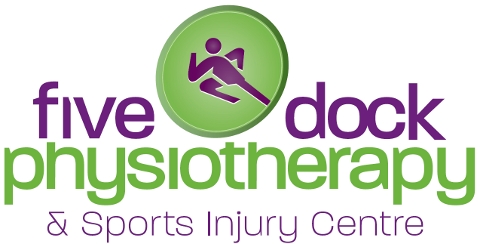Do you have a sore Shoulder?
Does it hurt when you reach out or try to lift your hand above your head?
Is it affecting your ability to put the clothes on the line, work or train?
What is it that’s causing this pain? Could it be a Rotator Cuff Tear?
The shoulder joint is generally thought of as an unstable shallow ball and socket joint – it relies on its ligaments and the glenoid labrum (a type of cartilage) for stability but it also relies on a series of muscles known as the Rotator Cuff (RC) muscles, for what we call dynamic stability. What’s super cool is that with the help of these RC muscles we have around 180 degrees of movement allowing us to throw, swim and do all types of things above our head. Effectively the shoulder is the most mobile joint in the entire body, which although super cool, does make it more susceptible to injury. Therefore, it requires a high degree of strength, stability and control which is provided by the RC muscles.
“A Rotator Cuff tear may be caused by direct trauma or by repetitious movement, slowly wearing away at the muscle”
It is not uncommon that people tear one or more of the RC muscles. Tears can either be traumatic or as a result of degeneration occurring – this happens in both sports people and the general public.
Physiotherapy plays an integral role in recovery to assist with range of motion, strength and return to sport or everyday function, whether the tear is being treated conservatively or in cases where surgery is required.
As mentioned, Rotator cuff tears can be separated into two categories:
- Traumatic: A one off incident as a result of a fall or some external force. This can be associated with a weakened or fatigued muscle being overloaded, leading to rupture.
- Degenerative: A result of gradual degeneration of the tendon due to overuse, poor muscle activation patterns and age. These tears can have a slow onset of pain and are usually exacerbated by movement. People will often suffer from Rotator cuff tendinopathy prior to this type of tear and it is associated with tendon degeneration and weakness.
What are the Risk factors?
- Contact and throwing sports
- Over 40 years
- Repetitive overhead activity
- Overuse
- Shoulder arthritis
- Poor biomechanics – including weakness along the lower kinetic chain
How Does Physio Help?
Physiotherapy plays an important role in diagnosing RC tears. Once confirmed as a RC tear, a decision regarding conservative or surgical management needs to be made based on the severity of the tear, age of the patient, and their functional and sporting requirements. It is extremely important to take each patient’s individual goals into consideration. Physiotherapy aims to achieve
full range of motion, and restoration of strength, motor control and flexibility with a graded return to full activities/sport/function.
Manual therapy such as soft tissue massage and releases, and joint mobilisations can assist to improve movement and flexibility whilst biomechanical analysis (looking at the way the patient moves as a whole) can identify and correct abnormalities or compensatory movements contributing to shoulder pain, dysfunction and the tear itself. Physiotherapy also provides an individualised and progressive exercise program that focuses on strength, endurance and control while incorporating the kinetic chain to achieve optimal results. Additionally, if identified early enough, physiotherapy can help to treat rotator cuff tendinopathy and impingement prior to it developing into an overuse degenerative RC tear.
What does the evidence say?
Historically partial RC tears have been treated with surgical repair and subsequent physio rehabilitation. There is however recent evidence advocating for conservative physiotherapy treatment, as the initial treatment as demonstrated by Ryosa et al. 2017. This study demonstrates that surgery is not more effective than conservative treatment alone in partial thickness tears. The importance of exercise and rehabilitation is shown across multiple studies with Heron et al. 2016 showing improvements in pain and disability. Jeanfavre et al. 2018 further emphasised the benefit of exercise therapy with pain, range of motion, strength and function improving in greater than 80% of participants, with only 15% of RC tears transitioning to surgery. Thomson et al. 2016 conducted a study into post-surgical protocols and found that post-surgical improvements were achieved consistently across varying rehab protocols when directed by a physiotherapist. The consistent evidence supporting rehabilitation demonstrates the potential for exercise to both improve shoulder outcomes and avoid surgical intervention. Steuri et al. 2017 found that manual therapy added to exercise was superior to exercise alone in the short-term follow-up, leading to reduced symptoms and improved outcomes.
If you have shoulder pain and you are concerned that it could be a Rotator Cuff Tear, then it’s probably worth your while getting an assessment by our team of professional physiotherapists.
In The ‘GET ASSESSED AND FIXED PHYSIO SESSION’ our physio’s will help you:

Get crystal clear about what’s causing your shoulder issue
Understand what activities you can do without suffering consequences of shoulder pain
Find out the simple yet essential exercises that can help you achieve the best result
Leave the session with the confidence of knowing exactly what to do to get symptom free and back to living life without pain

